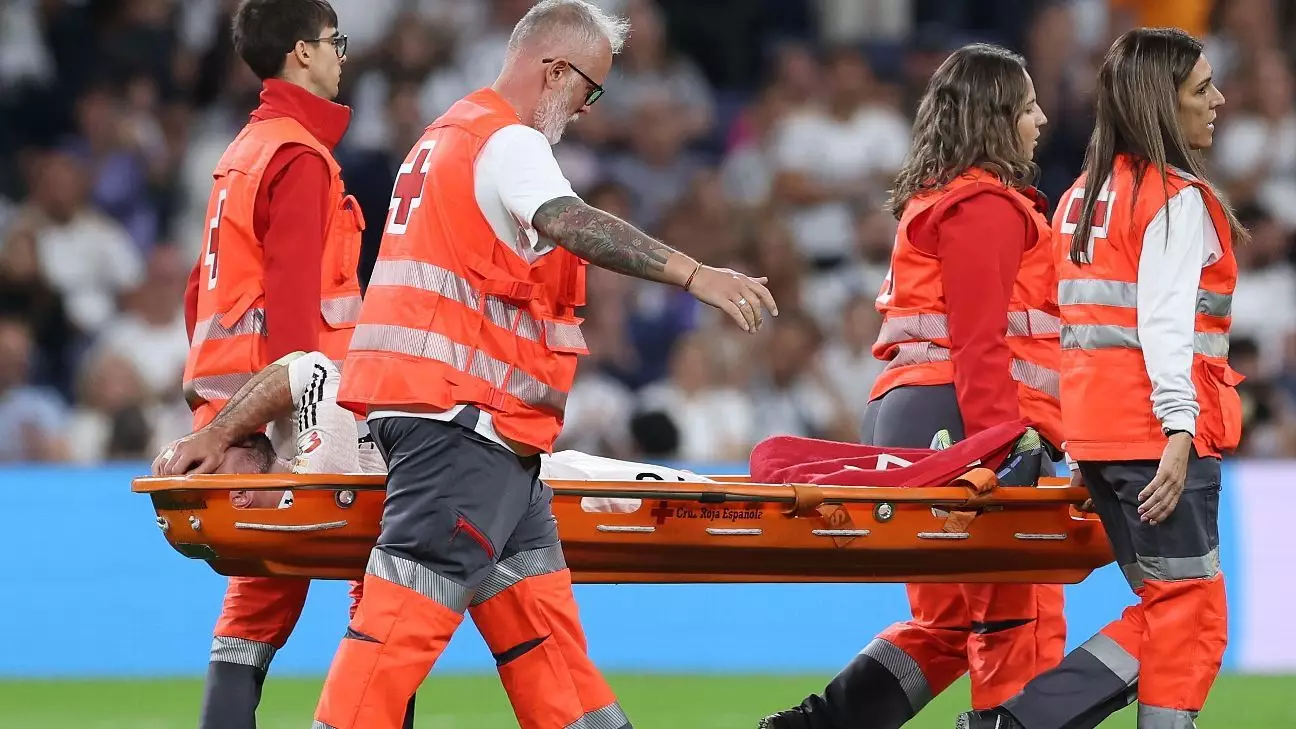Real Madrid, one of the most iconic football clubs in the world, finds itself at a crossroads following the serious injury of Dani Carvajal. As the team grapples with this setback, the search for a suitable right-back replacement has become critical. However, the task ahead is fraught with difficulties that go beyond simply acquiring a new player.
The recent match against Villarreal ended on a sour note for Real Madrid as Dani Carvajal was stretchered off the field. Subsequent medical reports confirmed that the Spanish international suffered severe damage to his right leg, needing surgery to repair a ruptured anterior cruciate ligament along with other significant injuries. Carvajal’s absence not only disrupts the team’s defensive structure but also raises questions about depth in the squad, particularly in the right-back position.
With Carvajal out, Lucas Vázquez, a player converted from a winger, stands as the only experienced option available. This transition highlights the precarious nature of squad management and the lack of depth in key areas, particularly when injuries strike. While Vázquez has been a dependable choice for filling in, doubts linger regarding his long-term ability to perform as a regular starter in a position that relies heavily on specialized defensive skills.
Despite the urgency, Real Madrid is faced with an arduous task in securing a suitable replacement during the January transfer window. Reports suggest that the club has received offers for more than ten players since Carvajal’s injury. However, the challenges arise primarily from contractual obligations that existing players have with their respective clubs. The task is not merely to find candidates but to evaluate the feasibility of bringing them into a team competing at the highest levels.
One name prominently surfacing in discussions is Trent Alexander-Arnold of Liverpool, whose contract situation has drawn the attention of the Spanish giants. Although Madrid had viewed him as more of an opportunity rather than a pressing need, Carvajal’s injury shifts his profile to that of a prime candidate. Nonetheless, negotiation complexities abound, as Alexander-Arnold’s relationship with Liverpool and their aspirations make any mid-season transfer a delicate affair.
Real Madrid’s situation is further complicated by a thinly stretched squad following previous transfer decisions. The club missed the chance to secure center-back Leny Yoro, only to see him join Manchester United while they were looking for alternatives. This has now cast a spotlight on the overall defensive capabilities of the current lineup. Although Éder Militão and Antonio Rüdiger serve as the primary central defensive duo, injuries continue to haunt the squad, with David Alaba still in recovery.
Ancelotti’s tactical philosophy relies on a cohesive defense, making it imperative that Madrid bolster their options. However, evaluating current players presents its challenges: Aurélien Tchouaméni is seen as a versatile alternative but lacks the positional specificity needed for a steadfast right-back performance. Meanwhile, the left-back situation with Ferland Mendy and Fran García yields minimal confidence, particularly in García’s ability to step up as a regular starter.
As Real Madrid navigates through this turbulent time, their strategy appears twofold: identify experienced players who can step in immediately while also scouting for long-term solutions. The delicate balance of addressing immediate needs while planning for the future is not an easy one, especially when facing forces like Bayern Munich regarding potential signings like Alphonso Davies.
As the January transfer window approaches, Madrid’s management has to act swiftly yet wisely. Whether they choose to invest in ready-made solutions or nurture younger talents may come to define their immediate future. The luxury of time is not on their side, as the urgency to solidify the defense becomes ever more pressing.
Ultimately, as Madrid seeks to cover critical gaps in their defense, the road ahead is fraught with challenges, decisions, and necessary adaptations. In an unforgiving league where greatness demands excellence, the mark of a top club lies not only in securing star players but in building robust systems that can withstand the test of time.

